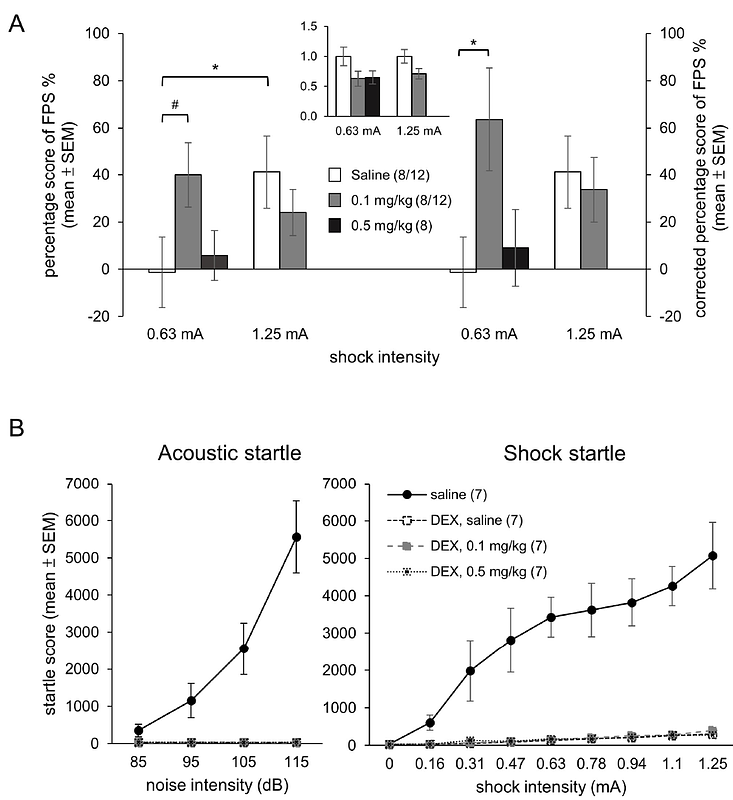Epinephrine Enhanced Fear Conditioning under Pentobarbital or Dexmedetomidine Anesthesia in Rats

Epinephrine Enhanced Fear Conditioning under Pentobarbital or Dexmedetomidine Anesthesia in Rats
Chen, K.-H.; Chao, S.-T.; Chang, S.-D.; Chen, D.-Y.; Liang, K.-C.
AbstractThis study examined effects of epinephrine injected in learning under anesthesia on awake memory of three fear conditioning tasks. Epinephrine given after training at various doses did not affect conditioned freezing acquired in an awake state or under 50 mg/kg pentobarbital; however, 0.1 mg/kg epinephrine caused saving in re-learning. For conditioned-fear potentiation of startle acquired in an awake state, epinephrine at 0.01 or 0.1 mg/kg enhanced 1-trial learning but at 1.0 mg/kg impaired 5-trial learning. For this task trained under pentobarbital, epinephrine enhanced 1-trial learning at 1.0 mg/kg and 5-trial learning at 0.1 or 1.0 mg/kg. Under infusion of dexmedetomidine (0.1 mg/kg/hr), learning of this task at a 0.63 mA foot shock yielded poor memory, which was improved by 0.1 mg/kg epinephrine; yet epinephrine had no effect on the better memory yielded by 1.25 mA foot shock. In an inhibitory avoidance task, rats in an awake state explored the apparatus and then received foot shocks under anesthesia of dexmedetomidine, injections of 0.1 mg/kg epinephrine before each shock training session enhanced memory. Deleting the awake exploration abolished the epinephrine effect. These results, taken together, suggest that epinephrine could enhance learning in three conditioning tasks under two anesthetics when the fear memory was assessed indirectly through its modification of an innate or learned behavioral tendency.